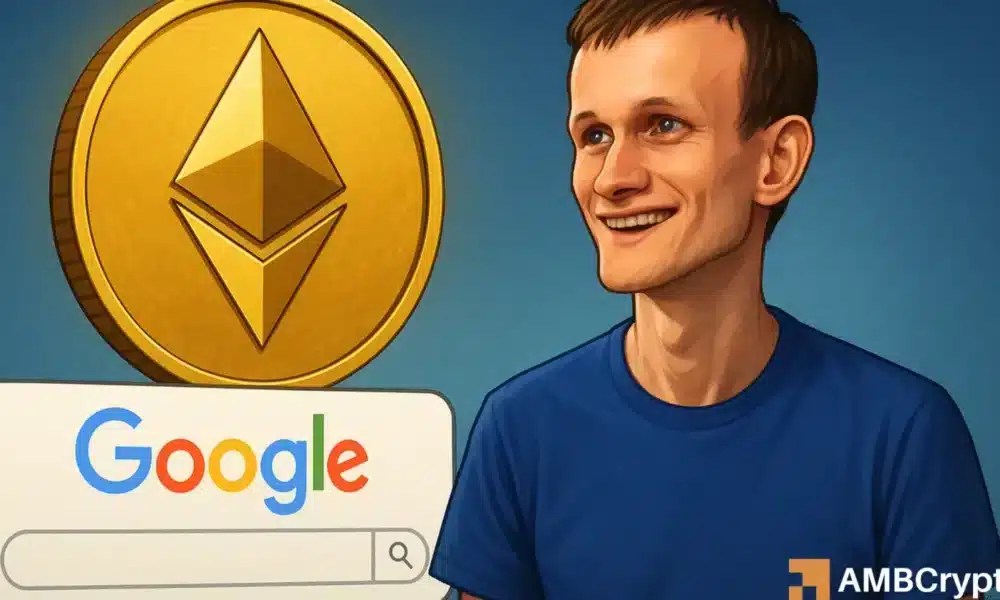We Can Fix The Web Without Regulation
The post We Can Fix The Web Without Regulation appeared on BitcoinEthereumNews.com. Sir Tim Berners-Lee, computer scientist, inventor of the web and an all-round good guy, wrote some words in The Evening Standard earlier this week, arguing that polarization, conspiracy and mental health crises online stem from design flaws that must be corrected — even if that requires regulation. The piece draws directly from chapter 13, “Design Issues,” of his recently released book “This Is for Everyone: The Unfinished Story of the World Wide Web,” which I encourage everyone to read. I agree with Berners-Lee’s diagnosis. But regulation is not the cure. The web’s decline is not merely a design failure; it is also an economic one. Design choices follow incentives, and those incentives have been distorted by fiat money and the advertising model it props up. Cheap credit from the fiat-fuelled venture capital system pushed Silicon Valley away from hacker-led engineering and toward surveillance-driven profit extraction. To fix the web, we need open source protocols and open source money. The internet can be fixed without regulation. But we cannot engineer a solution while ignoring the monetary headwinds that shape design. The economic system — quarterly shareholder primacy and fiat inflation — pressures companies to prioritize engagement, outrage and surveillance advertising. Bitcoin changes this equation. It removes inflationary pressure, potentially breaks the ad model by enabling new forms of monetization that align with user interests rather than exploit them. Combined with open protocols, Bitcoin is the enabler of a freer, more ethical web. What Went Wrong With World Wide Web Berners-Lee highlights two main symptoms: polarization and mental health damage. He’s right. 1. Polarization and Collapse of Shared Reality Berners-Lee says: “The most egregious symptom is polarisation. Social media, as currently built, leads users to take extreme political positions and demonise the opposing side. This makes constructive engagement difficult, allows outlandish conspiracy theories…

The post We Can Fix The Web Without Regulation appeared on BitcoinEthereumNews.com.
Sir Tim Berners-Lee, computer scientist, inventor of the web and an all-round good guy, wrote some words in The Evening Standard earlier this week, arguing that polarization, conspiracy and mental health crises online stem from design flaws that must be corrected — even if that requires regulation. The piece draws directly from chapter 13, “Design Issues,” of his recently released book “This Is for Everyone: The Unfinished Story of the World Wide Web,” which I encourage everyone to read. I agree with Berners-Lee’s diagnosis. But regulation is not the cure. The web’s decline is not merely a design failure; it is also an economic one. Design choices follow incentives, and those incentives have been distorted by fiat money and the advertising model it props up. Cheap credit from the fiat-fuelled venture capital system pushed Silicon Valley away from hacker-led engineering and toward surveillance-driven profit extraction. To fix the web, we need open source protocols and open source money. The internet can be fixed without regulation. But we cannot engineer a solution while ignoring the monetary headwinds that shape design. The economic system — quarterly shareholder primacy and fiat inflation — pressures companies to prioritize engagement, outrage and surveillance advertising. Bitcoin changes this equation. It removes inflationary pressure, potentially breaks the ad model by enabling new forms of monetization that align with user interests rather than exploit them. Combined with open protocols, Bitcoin is the enabler of a freer, more ethical web. What Went Wrong With World Wide Web Berners-Lee highlights two main symptoms: polarization and mental health damage. He’s right. 1. Polarization and Collapse of Shared Reality Berners-Lee says: “The most egregious symptom is polarisation. Social media, as currently built, leads users to take extreme political positions and demonise the opposing side. This makes constructive engagement difficult, allows outlandish conspiracy theories…
What's Your Reaction?







































